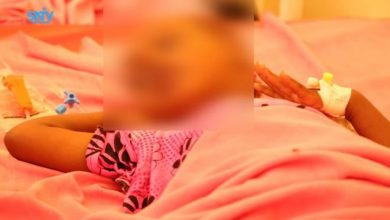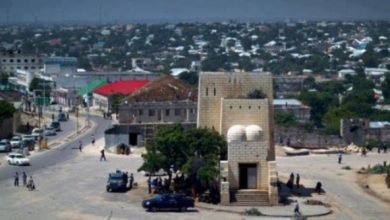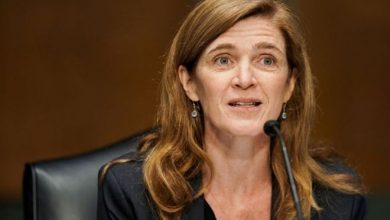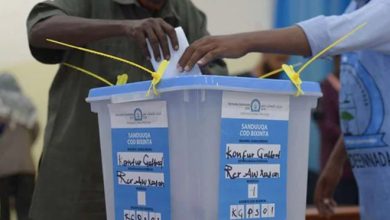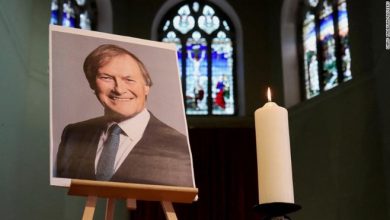IDPs moved to new site in Luq complain of lack of shelter, water, toilets, jobs
(ERGO) – Internally displaced families who have been relocated to a centralised plot of land outside Luq town in Somalia’s Gedo region are complaining that they no longer have access to basic services such as water and toilets.
(ERGO) – Internally displaced families who have been relocated to a centralised plot of land outside Luq town in Somalia’s Gedo region are complaining that they no longer have access to basic services such as water and toilets.
More than 7,500 families living in 12 IDP camps dotted around the town were ordered in May to shift to an undeveloped piece of privately owned land acquired by the authorities.
Halimo Abdi Isack, one of the last IDPs to move, said she was forced to carry her belongings from Busleey IDP camp as she could not afford to hire a vehicle and no other arrangements were made.
“We were directed on 7 May to move to this area within two weeks. We were not helped. We carried our own belongings on our backs. Those who had donkeys used them for transport,” she said.
Halimo’s family of six has been sleeping in the unfinished hut with no roof that she has started building on the new land, using material from the two-roomed traditional Somali hut they occupied since 2013 in Busleey camp.
She makes about 20,000 Somali shillings ($0.8) a day selling firewood outside her door that she collects. But she also has to walk one kilometre to fetch water from the river Juba River every afternoon.
“We had free water taps in our old camp, we never used to fetch water from the river, but here we have to go to the river as we can’t afford to buy it. Our biggest need now is free water and toilets.”
Halimo was originally displaced from Dhanawe, Bakool region, where the family’s herd of 162 goats died in drought. She had been doing laundry jobs for Luq residents making 60,000 Somali Shillings ($2.4) a day, until the second wave of COVID19 disrupted her work as residents feared exposure to the virus.
“No one visits the other because of COVID19 these days. Everyone has their own fears,” she said.
Making a living is harder for the residents on the new plot outside town.
Jimale Ali Mohamed and his family were among 120 families relocated from Bohol-yahaas camp, where they lived for 10 years since fleeing the 2011 drought that killed their 310 goats in a rural area of Hudur in Bakool.
The father of seven said the relocation was hastily planned and had pushed some of the most vulnerable families into an even worse situation. Aid agencies like UNICEF had established water facilities and latrines in some of the old camps.
“Some of us were already poor and now the relocation has exacerbated our situation. Some of the families here don’t even have shelter. There is no life here, we are just living in an open field,” Jimale said.
Luq district’s social affairs commissioner, Abdiaziz Sugow, told Radio Ergo that the aim of the relocation was to consolidate all the displaced families in Luq in one area, where they would be registered to know their total number and to facilitate aid distributions. He defended the move as providing a suitable site, where school and health centres could be built. He said the administration was in communication with humanitarian agencies around assistance for the families in the new site.
He added that the private landowners had forfeited the site at the request of the authorities for use as an IDP settlement.
